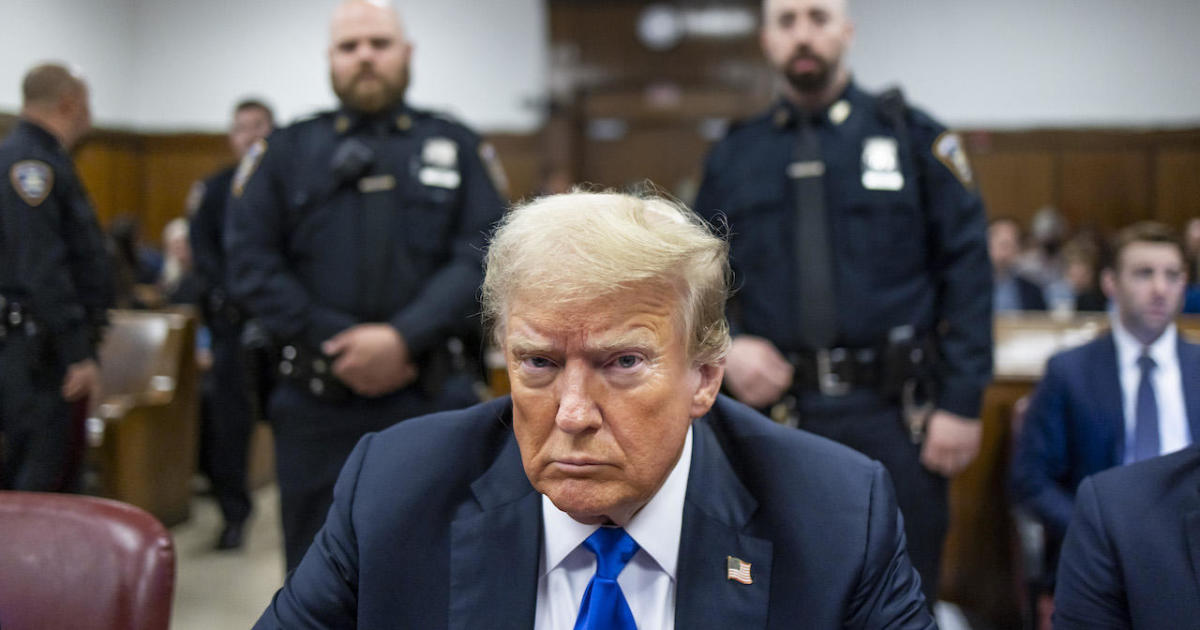New York prosecutors say President-elect Donald Trump’s return to the White House should not undermine the decision of 12 jurors who found him guilty of dozens of felonies in May, telling the judge overseeing the case that the conviction should stand.
“This Court should reject [Trump’s] motion to ‘immediately’ dismiss the indictment and vacate the jury’s guilty verdict based on the outcome of the recent presidential election,” prosecutors for Manhattan District Attorney Alvin Bragg wrote in their filing, which was made public Tuesday. “There are no grounds for such relief now, prior to defendant’s inauguration, because President-elect immunity does not exist.”
Soon after Trump’s election in November, his defense lawyers promised to urge Justice Juan Merchan to toss his indictment in the “hush money” case and set aside the verdict. They made their motion on Dec. 2, hinging their push to discard the will of 12 jurors who sat for the seven-week trial on an unlikely subject: President Biden’s son, Hunter. Trump’s attorneys said the announcement of Hunter Biden’s controversial pardon echoed Trump’s complaints about his prosecution, claiming it was politically driven.
Prosecutors did not mention either Biden or the pardon in their response filing.
They hit back against the core of Trump’s effort to set aside his conviction. Trump’s lawyers — two of whom are slated to take on senior roles in the Justice Department after Trump’s inauguration — have argued that it would be unconstitutional for an incoming president to carry the burden of a guilty verdict reached before his election.
“[Trump’s] suggestion that his subsequent election ‘superseded’ the jury’s verdict is deeply misguided,” prosecutors wrote. “As this Court carefully and correctly instructed the jury, it was the empaneled jurors who were ‘deciding whether the Defendant is guilty or not guilty’ because only these jurors — not the general electorate — heard all the evidence in this trial.”
Mark Peterson / AP
Prosecutors argued Trump’s lawyers are trying to “effectively extend the period of [Trump’s] immunity to a time before his presidency, by wiping out the effects of an indictment and jury verdict that took place before he was even reelected President.”
Trump’s sentencing has been postponed three times since his conviction in May. It was initially scheduled for July 11, but Merchan pushed that date back so Trump’s attorneys could file a separate motion to dismiss following a landmark Supreme Court ruling. The nation’s highest court concluded in early July that former presidents could not be charged for official acts, and evidence related to their official work as president could not be used as evidence against them.
Merchan has not ruled on that motion. He postponed the second sentencing date, Sept. 18, after Trump’s lawyers argued it was too close to the election. After Trump’s election victory on Nov. 5, they demanded a Nov. 26 sentencing date be postponed so they could file the new motion to dismiss the case, revolving around his return to the White House.
Bragg’s office said in its filing it would be open to postponing sentencing and other proceedings until after Trump’s term in office, which ends in 2029.
“If [Trump] is not sentenced before his inauguration, there is also no legal barrier to deferring that sentencing until after the end of his presidency,” they wrote.
The judge’s decision will be the latest moment in the case to set a historical precedent. Trump was the first person to be elected president after being convicted of crimes. When the unanimous jury concluded in May he was guilty of 34 counts of falsifying business records, he became the first former president ever convicted of crimes. In March 2023, Trump became the first former president ever indicted when a grand jury concluded he should be charged.
The case focused on a coverup of a “hush money” payment to an adult film star. Trump authorized a scheme to conceal reimbursements to a lawyer who made the payment days before Trump’s first election.
Trump pleaded not guilty in the case and has promised to appeal his conviction.

